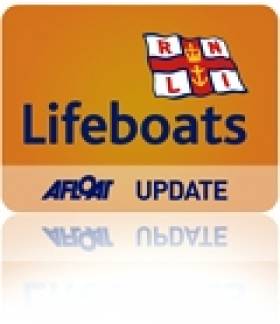Displaying items by tag: emergency call
A Maltese flagged oil/chemical tanker which required emergency repairs is at the shipyard of Harland & Wolff, Belfast having arrived earlier this month, writes Jehan Ashmore.
The 127m red hulled tanker, Songa Crystal called to Belfast Lough on 8 January and is from a fleet of chemical, crude and product tankers. Afloat.ie has identified the tanker is part of Songa Shipholding, of the Blystad Group which owns the vessel and technically is managed by division, Songa Shipmanagement Ltd, based in Paisley, Scotland.
Once in the fairway in Belfast, Songa Crystal proceeded to H&W’s Belfast Dry-Dock, the smaller of two dry-docks at the marine engineering facility located on Queens Island.
Emergency repairs took place of the 12,927 deadweight tonnes (dwt) tanker which has Panama as a port and registry and was built in 2006 by Samho Shipbuilding, in Masan, South Korea.
During dry-docking of the 18 year-old tanker which has had two previous names, has seen the H&W team involved in extensive cleaning and replacing works to both the engine room. This has also applied to the fuel tanks and to the port and starboard side shells.
According to H&W, they have been liaising closely with the ship's staff, ships superintendent and classification society, which has led to efficiency that has enabled progress with the steel repair process.
This was to ensure that the Songa Crystal will be fully operational as soon as possible, as the tanker it is understood, is to depart this week to rejoin the 21 strong fleet, which ranges up to 25,000dwt.
Crosshaven Lifeboat Rescues Crew from Sinking Fishing Vessel
At 11.19am , Valentia Coast Guard alerted Crosshaven RNLI Lifeboat that the fishing vessel was in serious trouble off the Church Bay area and requested an immediate launch. Crosshaven lifeboat launched within 5 minutes and with its volunteer crew of Kieran Coniry, Dan O'Donoghue and Vincent Fleming, made good progress through a two metre sea swell arriving on scene to find the fishing boat had at this stage sank and the crew safely in the Liferaft.
The Ballycotton RNLI all weather Lifeboat was at sea on exercise at the time and immediately altered course to the incident. Crosshaven Coast Guard were also tasked and en route.
When it became clear that the two crewmen were safely aboard the Crosshaven Lifeboat, the other emergency services were stood down. Crosshaven Lifeboat then brought the two fishermen back to Crosshaven.
While it is unknown what caused the fishing boat to flounder, the crew had little time to deploy their liferaft and make an emergency call before the boat sank.
Related Safety posts
RNLI Lifeboats in Ireland
Safety News
Rescue News from RNLI Lifeboats in Ireland
Coast Guard News from Ireland
Water Safety News from Ireland
Marine Casualty Investigation Board News
Marine Warnings






























































